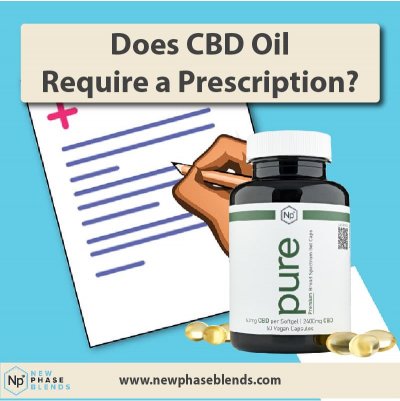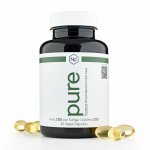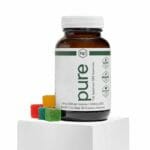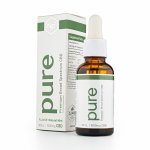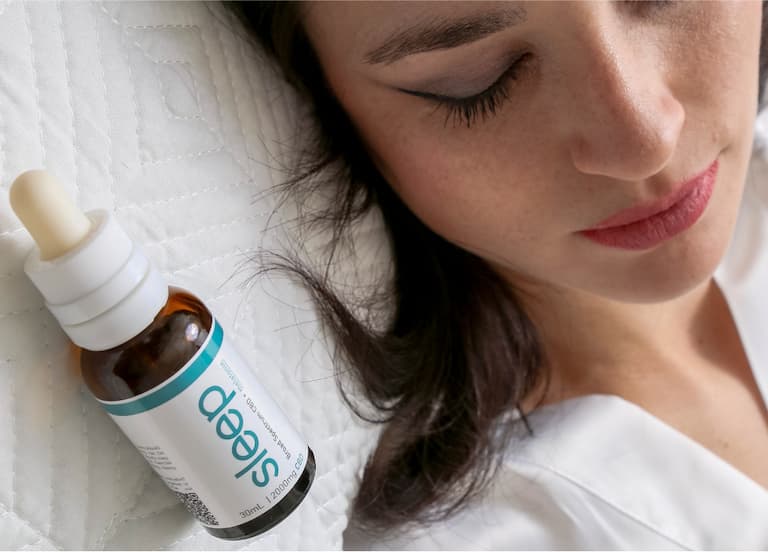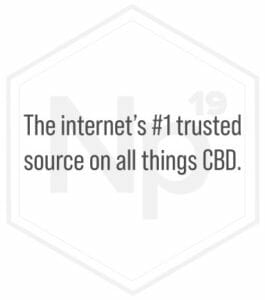With the ever-rising number of retailers that now carry CBD oil and various other CDB products, the buying process is becoming far more transparent. However, this does not necessarily mean that the anxiety some may feel pertaining to such purchases has completely disappeared. One issue in particular that many are unsure of is if you need a prescription to buy CBD oil.
TL;DR – No, you do not need a prescription for CBD oil. As long as your CBD products come from hemp, it is 100% federally legal within the United States and a prescription for CBD oil is not needed.
Do You Need a Prescription For CBD Oil?
No, a prescription for CBD oil is not needed, and long as the CBD comes from hemp. This is because of a recent piece of legislation that was introduced back in 2018, known as the Farm Bill. We’ll get more into the Farm Bill later.
The CBD oil industry has exploded in recent years. When you consider all its beneficial properties related to health, it’s not surprising. When you buy CBD oil, you’re probably doing so to take advantage of these potential health benefits.
The popularity of CBD oil is apparent in the latest statistics. They state 33% of Americans have used the oil at least once, and 64% are familiar with CBD oil or other CBD oil products. Due to its medical properties, a question often asked is, does CBD oil require a prescription?
Discover: CBD Oil Nordic Oil
You do not require a prescription from a doctor or any other medical authority to purchase CBD oil or any CBD products.

However, CBD oil is not included in the United States list of controlled substances. This is thanks to the Farm Bill of 2018.
Still, it is not quite as clear-cut as it may first seem. Certain factors determine that the answer is no when asking, does CBD oil require a prescription.
Legal CBD products can only contain trace amounts of THC of 0.3% or less.
The Farm Bill of 2018 specifies that hemp is classified as cannabis with a THC content of 0.3% or less. As long as that THC content is met, your CBD oil products are legal.
Related: CBD Ointment
The number of states that only permit medical cannabis and not recreational far outweigh those which allow both. So, if you happen to live in a state where medical cannabis is permitted, but its recreational use is illegal, does CBD oil require a prescription in these states?
As long as THC levels are below 0.3% in your CBD oil, you will not need a prescription, and you can purchase your CBD products online.
You will, however, require a prescription if you want to purchase CBD oil products with higher levels of THC if you live in a state where the recreational use of cannabis is illegal.
Related article: How Does CBD Help Manage My Pain?
If you wish to purchase CBD oil products containing high amounts of THC and your state permits both medical and recreational use, you can purchase them from your local recreational cannabis dispensary without a prescription.
Do You Need a Prescription For Hemp Oil?
Hemp Oil is the same thing as CBD oil, and therefore does not require a prescription to use it legally. Hemp oil, CBD oil, Hemp CBD oil…these are all names for the same product: an oil infused with cannabidiol (CBD), and other cannabinoids from cannabis.
Marijuana Requires a Prescription - Not CBD
First, we need to touch on a few things about cannabinoids, and the cannabis plant. The following information tends to confuse some people, so pay close attention.
Related article: Hemp vs Marijuana
In order to understand the laws surrounding cannabis and its derivatives, it is vital to have a concrete understanding of a few key terms.
Cannabis: Cannabis is the plant from which marijuana, CBD, and other such products are produced. It is an umbrella term, and covers a wide variety of different varieties of plants, including marijuana and hemp.
Cannabinoid: Cannabinoids are organic chemical substances that appear naturally in cannabis plants. Most cannabinoids do not result in intoxication, or the signature “high” feeling that most associate with marijuana consumption.
THC: THC, short for tetrahydrocannabinol, is a cannabinoid found in certain cannabis plants that creates the signature “high” feeling upon consumption.
CBD: CBD stands for cannabidiol, is another cannabinoid found in cannabis plants. Unlike THC, CBD does not produce the same signature “high” feeling.
Marijuana: Marijuana is any variety of cannabis or cannabis product that contains THC and therefore produces intoxication. Both medical and recreational marijuana are classified as such due to their THC content.
Hemp: Hemp is any variety of cannabis or cannabis product that contains less than 0.3% of THC on a dry weight basis, and does not produce intoxication upon consumption.
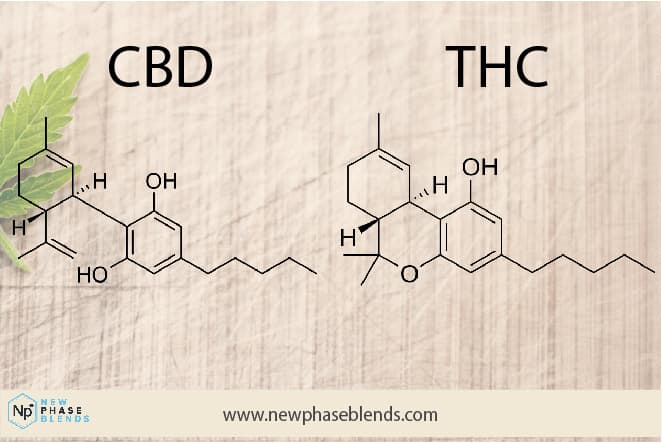
Related article: THC vs CBD – What’s the Difference?
As you can see, THC and CBD are different molecules. Sure, they are both found within cannabis, but they give us completely different effects when consumed.
Most noticeably, THC gets you high, and CBD does not get you high.
If It Makes You High, It Will Likely Require a Doctor's Approval
One of the concerns many people have when considering using CBD oil is that it may cause them to experience a high similar to cannabis.
Related: 2000mg CBD Oils
Rest assured, CBD (cannabidiol) will not cause a high. Using hemp derived CBD oil is safe, because it is the THC (tetrahydrocannabinol) that produces a high sensation. Although both THC and CBD derive from the same cannabis plant, their distinct properties separate them.
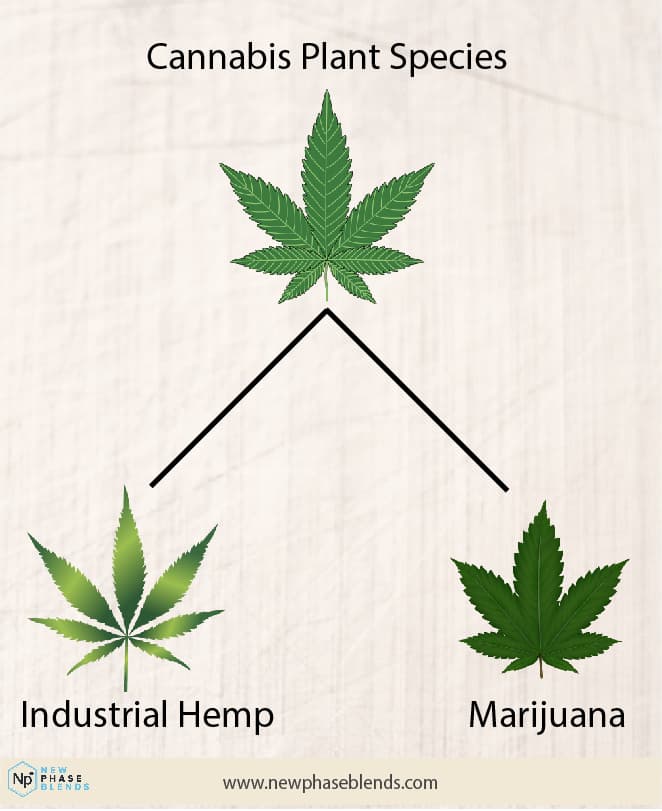
For those that do not know, the cannabis plant is comprised of both hemp, and marijuana. Many people do not know this.
THC is associated with psychoactive effects, while CBD oil is more notably known for its health benefits. This is not to say CBD doesn’t have psychoactive effects.
It does. They’re just not the same. Unlike THC, which binds with the cannabinoid receptors in the brain to produce a sense of euphoria or high, CBD binds very weakly, if at all.
Related: CBC Oil Benefits
THC can, of course, help reduce pain. The issue is, the use of it may restrict a person’s ability to go about their day normally. It can impair judgment, motor coordination, and reaction time.
On the other hand, CBD oil can provide the same pain relief but without day-to-day restrictions. It also has minimal side effects and virtually zero addiction profile. CDB oils, such as New Phase Blends, offer far more than simple pain relief. Other benefits include:
- May reduce anxiety and depression
- Helps to aid sleep
- Help clear up or reduce acne
- May have neuroprotective properties
- Could help control erectile dysfunction
According to the World Health Organization, other health benefits of CBD oil may include reducing symptoms and treatments of diseases such as Alzheimer’s, multiple sclerosis, and complications related to diabetes.
CBD Oil For Pain Relief - No Prescription Needed
Pure CBD Products for Sale by New Phase Blends
Type: CBD Starter Kit Bundle
Includes: Tincture, Balm, and Gummies
Features: You create your own kit with your custom product choices
Type: Pure CBD Softgel Capsules
CBD: 40mg per capsule
Features: Broad spectrum, vegan certified softgels
Type: Pure CBD Gummies
CBD: 45mg per gummy
Features: Full spectrum, premium quality CBD gummies
Type: Pure CBD Oil
CBD: 33mg or 66mg per serving
Features: Broad or full spectrum, premium CBD oil
Full article: How to Use CBD Oil For Pain
Many people buy CBD oil to reduce the symptoms of chronic pain. The reduction in pain, inflammation, and overall discomfort related to several health conditions that the oils offer makes them a great alternative to other traditional medications.
There is no doubt that the use of CBD oil reduces the pain associated with many health conditions. But, how does the product derived from cannabis achieve this?
We, as humans, all have what is known as the endocannabinoid system, or ECS, a cell signaling system. It’s thought that CBD interacts with a core component of the ECS receptors in an individual’s brain and immune system.
These receptors, minute proteins attached to a person’s cells, receive signals, predominately chemical ones, from different stimuli, which help the cells respond.
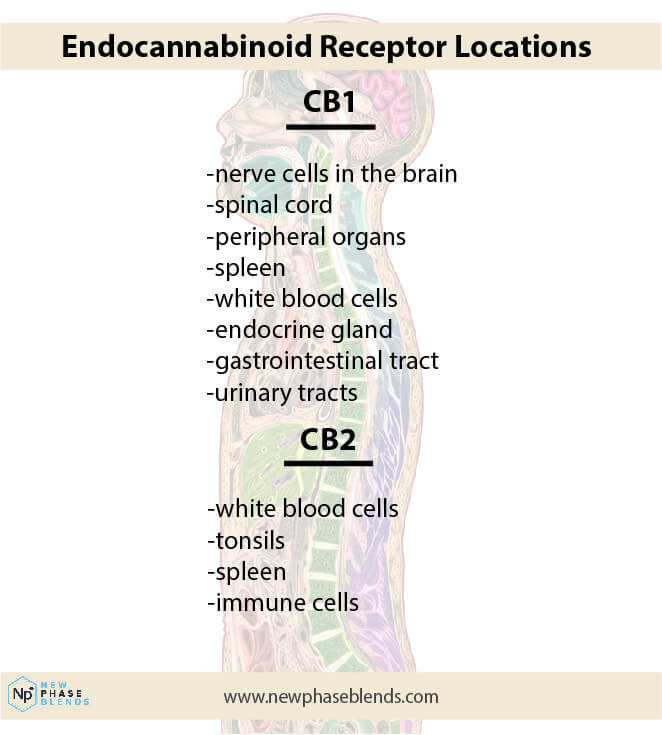
As a result of the response, anti-inflammatory and pain-relieving effects are created. These can help manage chronic pain, meaning CBD oils such as ‘Soothe’ Potent Topical CBD Balm from New Phase Blends may benefit people who regularly suffer from pain and discomfort.
Discover: CBD Oil Balm
The topical balm contains less than 0.3% THC, meaning no prescription is required, and comes in doses ranging from 500 mg to 2000 mg.
The rich, full spectrum extract is certified 100% organic and gives off a wonderful lavender scent.
Do CBD Gummies Require a Prescription?
The ever popular CBD gummies, also, do not require a prescription as long as they are derived from hemp, and contain less than0.3% THC.
Related: Does CBD Require a Prescription in Texas?
As you can see, this rule applies to all CBD products. So, as long as your CBD gummies meet this criteria, go ahead and buy some without worrying about a prescription.
Can Doctor's Prescribe CBD Oil For Anxiety?
A doctor won’t give you a prescription for this, because there is no need. CBD oil is an over the counter product, like aspirin. The good news is that CBD oil can help you with these discomforts, though.
Related: How Long Does CBD Oil Take to Work For Anxiety?
Initial studies have shown that CBD oil has shown promise in treating both anxiety and depression. In addition, it may also have far fewer side effects such as insomnia, mood swings, and sexual dysfunction, which are often associated with the pharmaceutical drugs used to manage these disorders.
CBD seems to have a positive interaction with serotonin receptors in the brain. Serotonin is the essential hormone that helps stabilize a person’s mood, wellbeing, and happiness.
This could explain why CBD oil is so beneficial when treating depression and anxiety. Maintaining balanced levels of serotonin is vital for fending off mental disorders such as anxiety and depression.
Related: CBD Oil for Depression
No Need For a Sleep Aid Prescription
The use of CBD oil can potentially reduce insomnia symptoms, resulting in a much-needed good night’s sleep. New Phase Blends CBD oil sleep aid provides 2000 mg of CBD and 90 mg of melatonin per tincture.
Discover: CBD Gummies For Sleep
The specially formulated oil not only helps you fall asleep but it also ensures you stay asleep.
To find out how CBD oil helps with a good night’s sleep, we must relate to the endocannabinoid system we discussed earlier.
Not only does it plays a role in maintaining certain body functions, such as moods, but it also helps regulate circadian rhythms.
If these rhythms are out of sync, the body’s systems won’t function properly, resulting in disturbed sleep. Serious sleep problems can arise from prolonged disturbed sleep-wake circadian rhythms.
A person may struggle to fall asleep, wake up during the night, or sleep for an insufficient amount of time.
If you do buy CBD oil products, make sure you buy the right type. Some are for sleep, while others are for muscle aches and pains or even energy promotion.
CBD Oil For the Treatment of Erectile Dysfunction
Related: How to Use CBD Oil for Erectile Dysfunction
Erectile dysfunction (ED) can cause significant anxiety and depression.
Although ED can increase with age, it is not the cause of the problem. It is caused by underlying issues, medical conditions, medications, traumas, and outside influences. It’s believed CBD could help eradicate the symptoms of ED by relaxing the blood vessels resulting in increased blood flow.
How Long Will CBD Stay In Your System?
CBD can stay in your system for a long time, actually. We’re talking 3-4 weeks, or so. Even though CBD begins to break down after around 8 hours of taking it, it can remain in tiny amounts within your body for a long time.
Is Over the Counter CBD Legal in the US?
CBD oil is legal in the US as long as your product contains less than 0.3% THC in it, and is made from hemp. CBD made from marijuana remains illegal, because of the high THC content.
Summary - A Prescription for CBD Oil Is Not Needed
Although CBD oil is commonly used to treat chronic pain, inflammation, anxiety, and insomnia, its capabilities could be even more far-reaching.
The plant extract, for instance, can reduce tumor growth in animal models of cancer. And it gets better. It could also increase the potency of certain drugs used in the treatment of cancer.
And remember, unlike many drugs used to treat various illnesses and chronic disorders, CBD oil comes with far fewer side effects. Visit our online CBD shop today.

When you buy CBD oil, keep an eye on the THC content. If it is higher than 0.3% THC, it will likely require a medical marijuana card.
If it’s under 0.3%, you are good to go, as it’s federally legal. All hemp derived CBD products are going to have a 0.3% THC content, or less.
And of course, as we already know, to buy CBD oil does not require a prescription if it is within the required limits of THC levels, so it can easily be purchased online.
*FDA disclaimer: none of the statements on this webpage have been approved by the FDA. These statements have not been evaluated by the FDA. These products are not intended to diagnose, treat, cure, or prevent any disease. Medical advice should be sought before starting any supplement. If you are pregnant or nursing consult with a doctor. Medical advice should be sought if you have any pre-existing medical conditions. If you take other prescription medications, a doctor’s advice should be sought. Site void where prohibited



